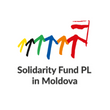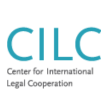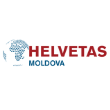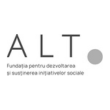Organizații vizate:
Anunțuri de Angajare
- Detalii
- Categorie: Angajări
Programme Manager (NPSA-10) - UNDP Moldova/Energy Transition Project - 18453
Informațiile prezentate în articolul de mai jos pot să nu mai fie actuale sau să nu mai reflecte activitățile și programele curente. Anunțul este păstrat în arhivă pentru a asigura transparența și accesul public la informațiile despre inițiativele și proiectele implementate anterior.
Salariul lunar net: 52000 MDL - 64700 MDL +8,33% (fond de pensii pe lună)
Asigurarea medicala internationala 100% acoperire
To apply please follow the link/Pentru a aplica, vă rugăm să adresați link-ul: Apply
Background
Diversity, Equity and Inclusion are core principles at UNDP: we value diversity as an expression of the multiplicity of nations and cultures where we operate, we foster inclusion as a way of ensuring all personnel are empowered to contribute to our mission, and we ensure equity and fairness in all our actions. Taking a ‘leave no one behind’ approach to our diversity efforts means increasing representation of underserved populations. People who identify as belonging to marginalized or excluded populations are strongly encouraged to apply. Learn more about working at UNDP including our values and inspiring stories.
UNDP does not tolerate sexual exploitation and abuse, any kind of harassment, including sexual harassment, and discrimination. All selected candidates will, therefore, undergo rigorous reference and background checks.
The Accelerating a Just Energy Transition in Republic of Moldova Programme (Programme) aims to drive a comprehensive and systemic just energy transition in the Republic of Moldova, effectively addressing the root causes of the energy crisis. It strives to promote sustainable development and ensure equitable access to affordable, reliable, and sustainable energy for all individuals and communities in the country.
The Programme aims to achieve five key ambitions, co-designed with energy stakeholders:
- Accelerate Energy Diversification and Efficiency: By supporting the modernization of infrastructure, buildings, and the grid, the Programme aims to increase access to renewable energy sources, promote energy efficiency, and encourage investment in renewable energy and innovative technologies.
- Decarbonizing Industries and Economic Sectors: sectors The Programme seeks to drive the decarbonization of various economic sectors such as construction, transportation, agriculture, and the private sector. It aims to promote sustainable practices, share green business models, and develop vocational skills for the green energy sector to create equitable employment opportunities and support the transition to a low-carbon economy.
- Foster Sustainable Consumption Patterns: Through comprehensive public awareness campaigns and educational materials, the Programme aims to deepen understanding of energy efficiency and renewable energy among community members, business leaders, and government agencies. It strives to promote behavior change towards sustainable energy practices, particularly among vulnerable populations.
- Strengthen Inclusive Energy Governance: The Programme recognizes the importance of inclusive energy governance at both the national and local levels. It aims to strengthen the capacity of relevant institutions and stakeholders to effectively govern and manage the energy sector. By promoting transparency, accountability, and participation, the Programme seeks to ensure that decision-making processes related to energy transition are inclusive, empowering all segments of society, including marginalized groups.
- Addressing Energy Vulnerability and Promoting Resilience: One of the Programme 's primary focus is to address energy vulnerability and promote resilience among households and businesses. It will provide further support to the Government in improving and implementing compensation mechanisms, including the established an on-bill compensation mechanism targeting the households by level of vulnerability. This intervention aims to provide immediate relief to energy-poor households and the private sector, while also fostering long-term energy resilience and efficiency. The Programme places a strong emphasis on meeting the energy needs of vulnerable groups, prioritizing affordability, reliability, and sustainability. To this end, it will explore conceptualization of decentralized energy solutions, off-grid options, and harness the role of energy access in conflict and disaster recovery efforts, livelihoods, and social inclusion.
The Programme duration is envisaged between 2023- 2027.
Duties and Responsibilities
The incumbent provides effective, efficient and coordination implementation of the Programme, through a range of actions contributing to the design, planning, management and monitoring of Porgramme activities, in line with portfolio design and management principles and approaches. The Project Manager applies and promotes the principles of results-based management (RBM), as well as a client-oriented approach consistent with UNDP rules and regulations, as follows:
- Oversee day-to-day operations and implementation of Programme activities;
- Exercise close monitoring of Programme activities and produce monitoring reports;
- Ensure the timely and efficient delivery of Programme outputs and products, as per the Programme Document, leading to the achievement of expected results;
- Develop Programme work plan, periodic narrative progress and final reports and expenditures status reports and submit to the supervisor;
- Ensure the implementation of the activities under the Programme work plan according to indicators for achieving planned results, as well as the overall management of the Programme in line with UNDP rules, regulations and procedures;
- Support UNDP CO in effectively managing human resources pertaining to the Programme, including staff, consultants and short-term experts; conduct periodic performance appraisals; build, lead and motivate a solid team of professionals;
- Support the efficient management of the Programme financial resources, including budgeting and budget revisions, as well as expenditure tracking and reporting;
- Continuously record and maintain Programme issues and risks and suggest mitigation measures;
- Maintain a close collaboration with other related UNDP projects and programmes to ensure synergies and complementarities;
- Ensure implementation of a portfolio design and management approach for planning and decision-making;
- Maintain a continuous effective dialogue with the key stakeholders, central and local government authorities, other UN agencies and actors active in the sector, CSOs, partner organizations, international and national experts in the areas of the Programme intervention in view of identifying synergies and avoiding overlapping of assistance;
- Perform any other duties connected directly with the implementation and evaluation of the Programme as required.
Knowledge Management and Sharing:
- Assist in coordinating the exchange of information internally and between relevant project stakeholders;
- Ensure timely and proper documentation of the programme implementation process and products produced in accordance with the UNDP guides;
- Ensure high quality information and visibility of the programme activities to the mass media and stakeholders and support mechanisms for exchange of information, experience and lessons learned at the local, national, and as required at international levels;
- Capture and disseminate good practices locally, nationally and as required internationally.
Competencies
Core Competencies
- Achieve Results: LEVEL 3: Set and align challenging, achievable objectives for multiple projects, have lasting impact
- Think Innovatively: LEVEL 3: Proactively mitigate potential risks, develop new ideas to solve complex problems
- Learn Continuously: LEVEL 3: Create and act on opportunities to expand horizons, diversify experiences
- Adapt with Agility: LEVEL 3: Proactively initiate and champion change, manage multiple competing demands
- Act with Determination: LEVEL 3: Think beyond immediate task/barriers and take action to achieve greater results
- Engage and Partner: LEVEL 3: Political savvy, navigate complex landscape, champion inter-agency collaboration
- Enable Diversity and Inclusion: LEVEL 3: Appreciate benefits of diverse workforce and champion inclusivity
People Management Competencies
UNDP People Management Competencies can be found in the dedicated site.
Cross-Functional & Technical Competencies
- Results-based Management
- Ability to manage programmes and projects with a focus at improved performance and demonstrable results
- Project Management
- Ability to plan, organize, prioritize and control resources, procedures and protocols to achieve specific goals
- Risk Management
- Ability to identify and organize action around mitigating and proactively managing risks
- Monitoring
- Ability to provide managers and key stakeholders with regular feedback on the consistency or discrepancy between planned and actual activities and project performance and results
- System Thinking
- Ability to use objective problem analysis and judgement to understand how interrelated elements coexist within an overall process or system, and to consider how altering one element can impact on other parts of the system
- Futures & foresight
- Ability to look at information from the past and present, identify patterns and trends and use them to inform decision making with a long-term view. Being sensitive and able to scan horizons and pick up weak signals of change, explore their potential implications and assess their impact and urgency. Using creativity and imagination to communicate insights in compelling and engaging ways to challenge current mental models; ability to develop scenarios, speculative designs to present future visions or by making it experiential. Being able to facilitate debate and discussion about possible futures; help people to feel comfortable with the discomfort of uncertainty.
- CSO Engagement
- Knowledge and understanding of CSOs and the ability to engage with CSOs
- Knowledge and understanding of CSOs and the ability to engage with CSOs
Required Skills and Experience
Education:
- Master’s degree (or equivalent) in environmental studies, engineering, law, public and/or business administration, economics or related areas is required.
- Bachelor’s degree in the areas mentioned above in combination with additional 2 years of qualifying experience will be given due consideration in lieu of Master`s degree.
Experience:
- Minimum 5 years (with Master’s degree) or 7 years (with Bachelor’s degree) of progressive working experience in the design, management and implementation of projects-based activities, preferably related to the legal and institutional support, infrastructure establishment, awareness raising, promotion of public and private partnership, work with the LPAs.
Required Skills:
- Minimum 3 years of progressive professional experience in the just energy transition area.
- Experience in the usage of computers and office software packages (MS Word, Excel, etc.) and advance knowledge of spreadsheet and database packages, experience in handling of web-based management systems.
- Experience in managing a multidisciplinary team or coordination between different teams is required.
- Relevant professional experience of engagement with a large variety of stakeholders (public, private, LPAs, central public authorities, mass-media etc.) is required.
Desired Skills:
- Previous experience in development assistance or related work for a donor organization, development partners, NGOs, UN Agencies is an asset.
- Prior experience with UNDP consultancy and/or project implementation.
- Familiarity and prior experience with the donor's requirements and procedures is considered as an asset.
- Ability to deal with people with tact and diplomacy.
- Ability to achieve results and deadlines in a timely manner, maintaining a high standard throughout.
- Additional training and certification in project management and/or business administration would be an advantage.
Languages:
- Fluency in English, Romanian and Russian (written and spoken) is required.
- Working knowledge of one or more additional languages relevant for Moldova, including Bulgarian, Gagauzian, Romani, Ukrainian or sign language is an asset.
Institutional Arrangement
The Programme Manager will work under the matrix supervision of the UNDP Moldova Deputy Resident Representative and Climate Change, Environment and Energy Cluster Lead and will ensure the provision of development services and products commensurate with the scope of the Programme and assigned area of responsibilities of the highest quality and standards to national and local counterparts and clients through applying HRBA and GE approaches.
He/she is responsible and accountable to the Programme Steering Committee for the Progranme’s results.
The Programme Manager will coordinate the project team, consisting of up to 6 full time employees and part time consultants, as envisaged in project organizational chart.
The Programme Manager will work in close cooperation with the Programme, Operations, Communications and other teams in the UNDP Country Office (CO) for effective achievement of results, anticipating and contributing to resolving complex programme/project-related issues and information delivery.
He/she also collaborates with other UN projects, national stakeholders and other development partners in supporting the Government in energy related area. The incumbent is expected to exercise full compliance with UNDP programming, financial, procurement and administrative rules, regulations, policies and strategies, as well as implementation of the effective internal control systems.
The Programme Manager in close collaboration with the Deputy Resident Representative, Energy, Env, Climate Change Cluster Lead, and Programme Analysts, supports UNDP Country Office in developing concept notes and project documents in the energy related area to further develop the Programme portfolio of UNDP Country Office in area of just energy transition.
Disclaimer
Applicant information about UNDP rosters
Note: UNDP reserves the right to select one or more candidates from this vacancy announcement. We may also retain applications and consider candidates applying to this post for other similar positions with UNDP at the same grade level and with similar job description, experience and educational requirements.
Non-discrimination
UNDP has a zero-tolerance policy towards sexual exploitation and misconduct, sexual harassment, and abuse of authority. All selected candidates will, therefore, undergo rigorous reference and background checks, and will be expected to adhere to these standards and principles.
UNDP is an equal opportunity and inclusive employer that does not discriminate based on race, sex, gender identity, religion, nationality, ethnic origin, sexual orientation, disability, pregnancy, age, language, social origin or other status.
Scam warning
The United Nations does not charge any application, processing, training, interviewing, testing or other fee in connection with the application or recruitment process. Should you receive a solicitation for the payment of a fee, please disregard it. Furthermore, please note that emblems, logos, names and addresses are easily copied and reproduced. Therefore, you are advised to apply particular care when submitting personal information on the web.
- Fundația Regina Pacis angajează asistent social
- Qu26/03062 Two International Experts on Digital Platform Regulation
- Anunț concurs angajare – Specialist în achiziții- I.P. ”Oficiul Național de Implementare a Proiectelor în domeniul Mediului”
- Repetat: AO Asociația pentru Abilitarea Copilului și Familiei „AVE Copiii” angajează Asistent(ă) social(ă) în raionul Ștefan Vodă sau în raionul Căușeni
- Legal Advisor position of Judicial Vetting Commission










